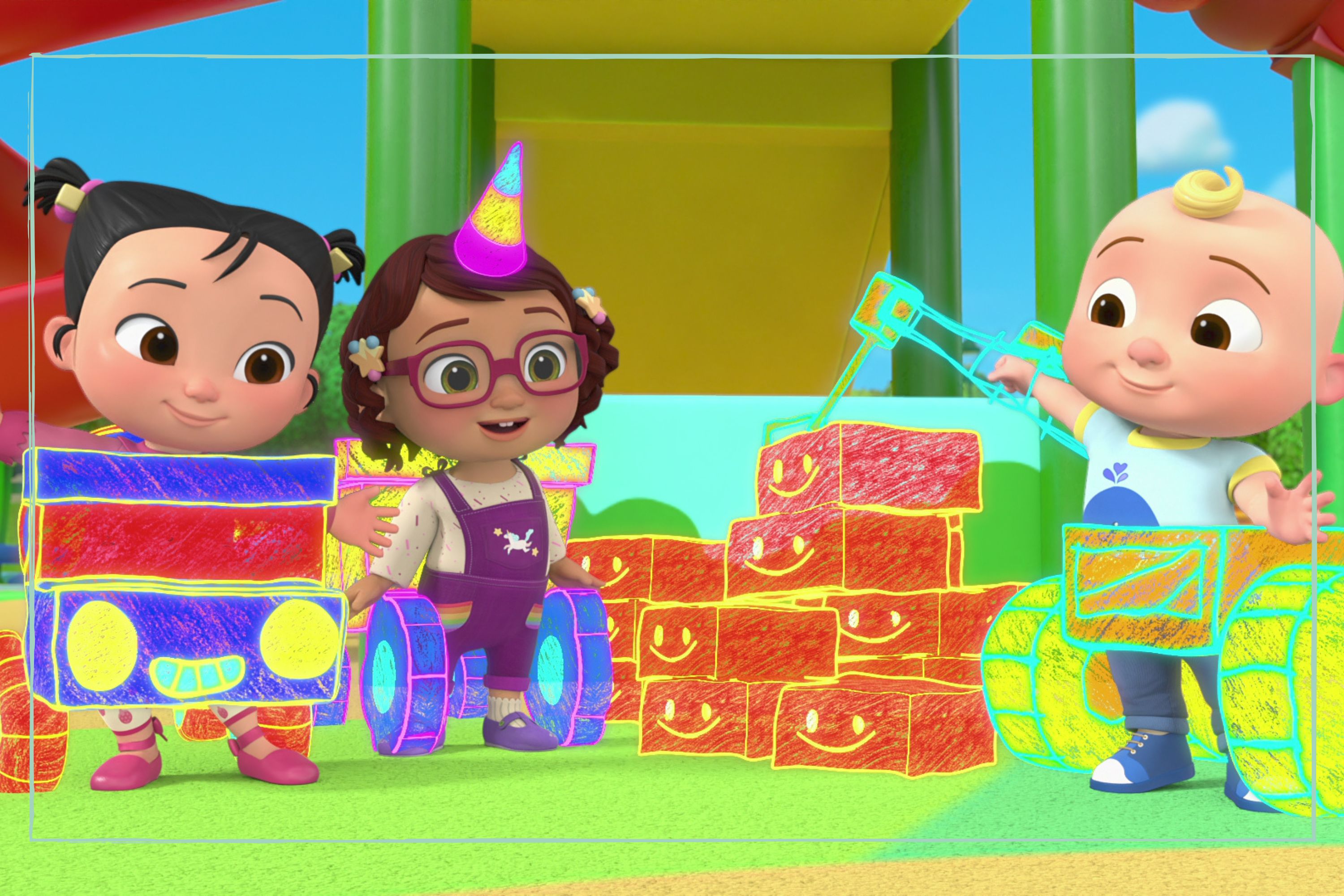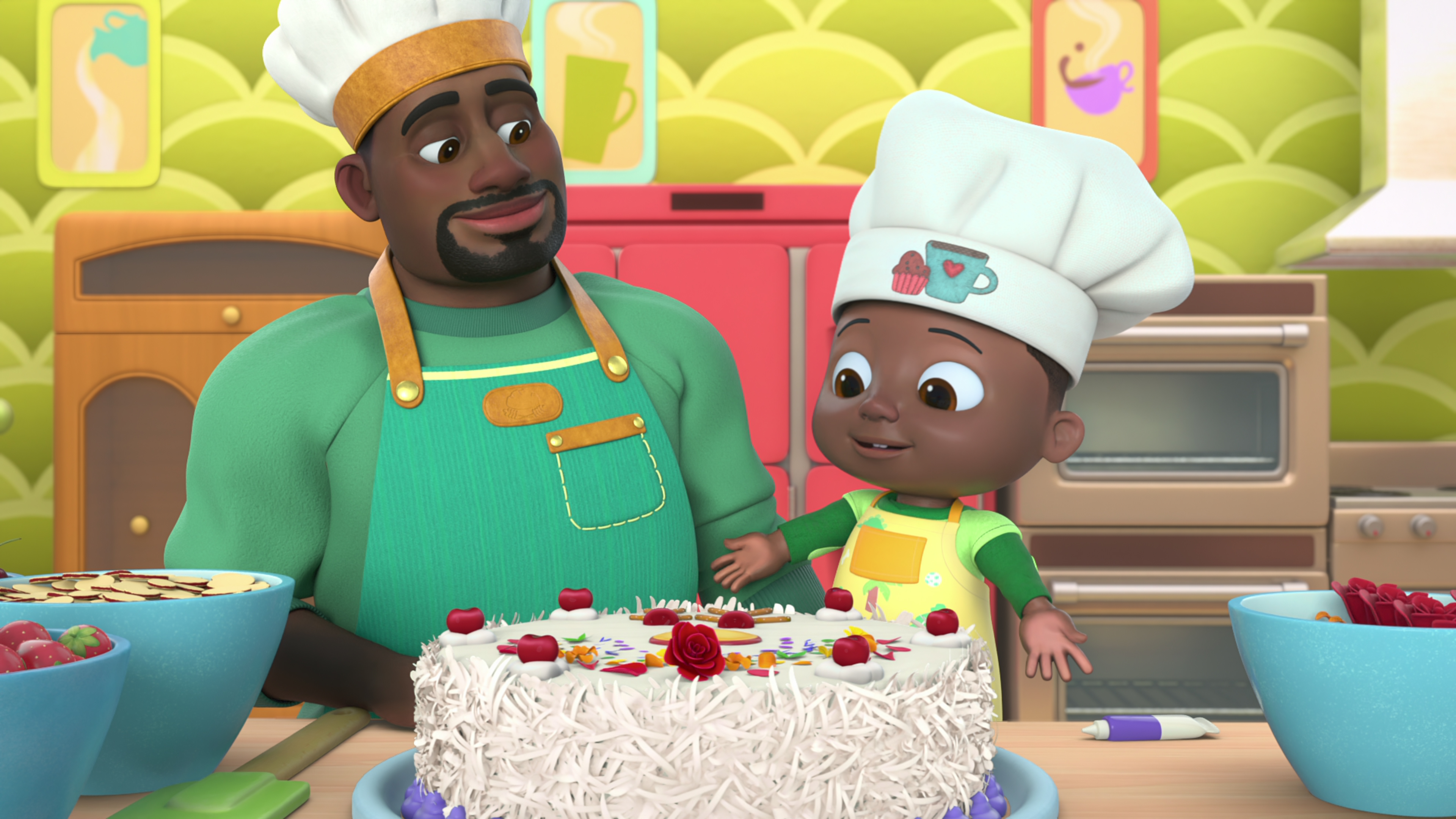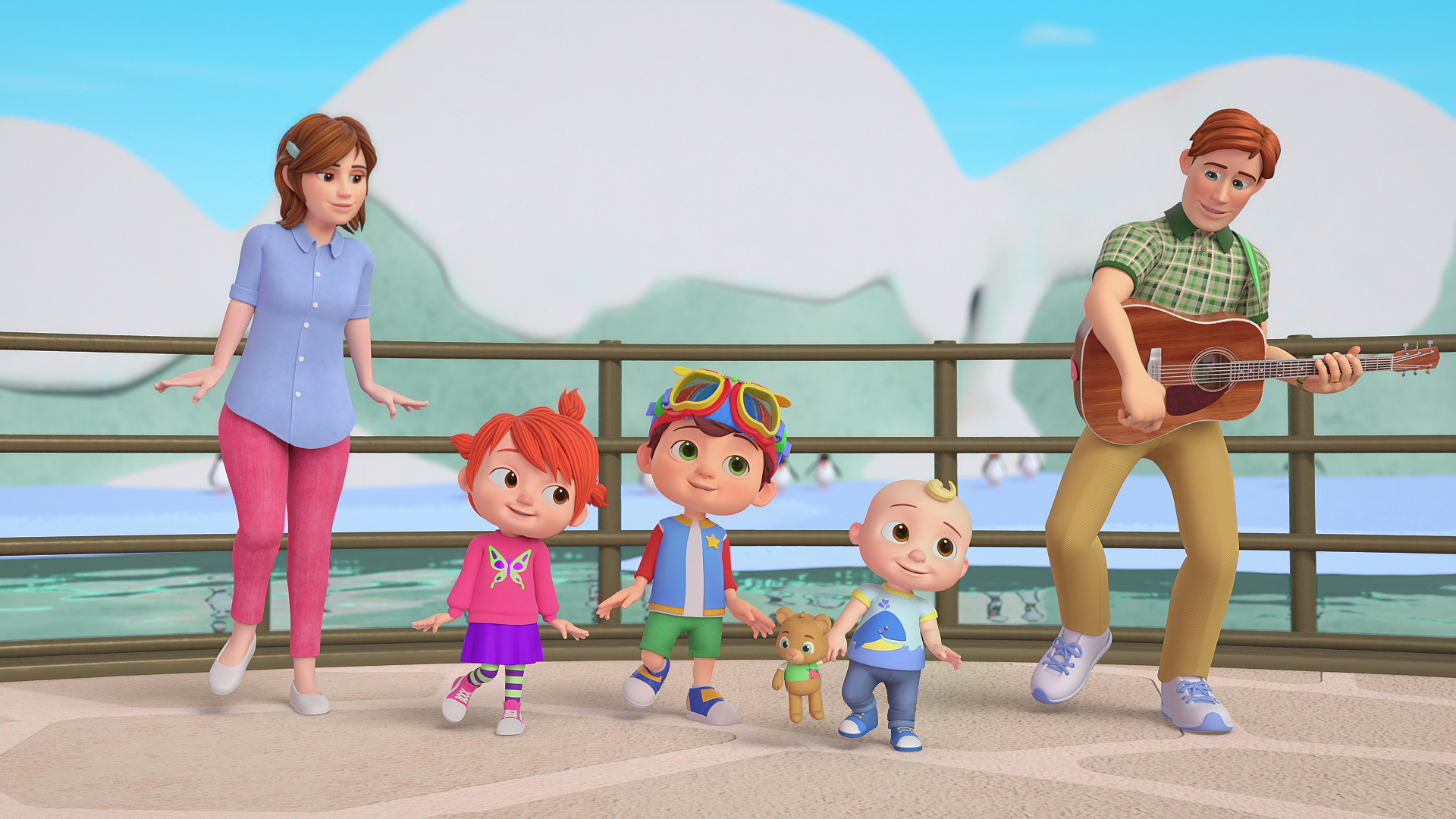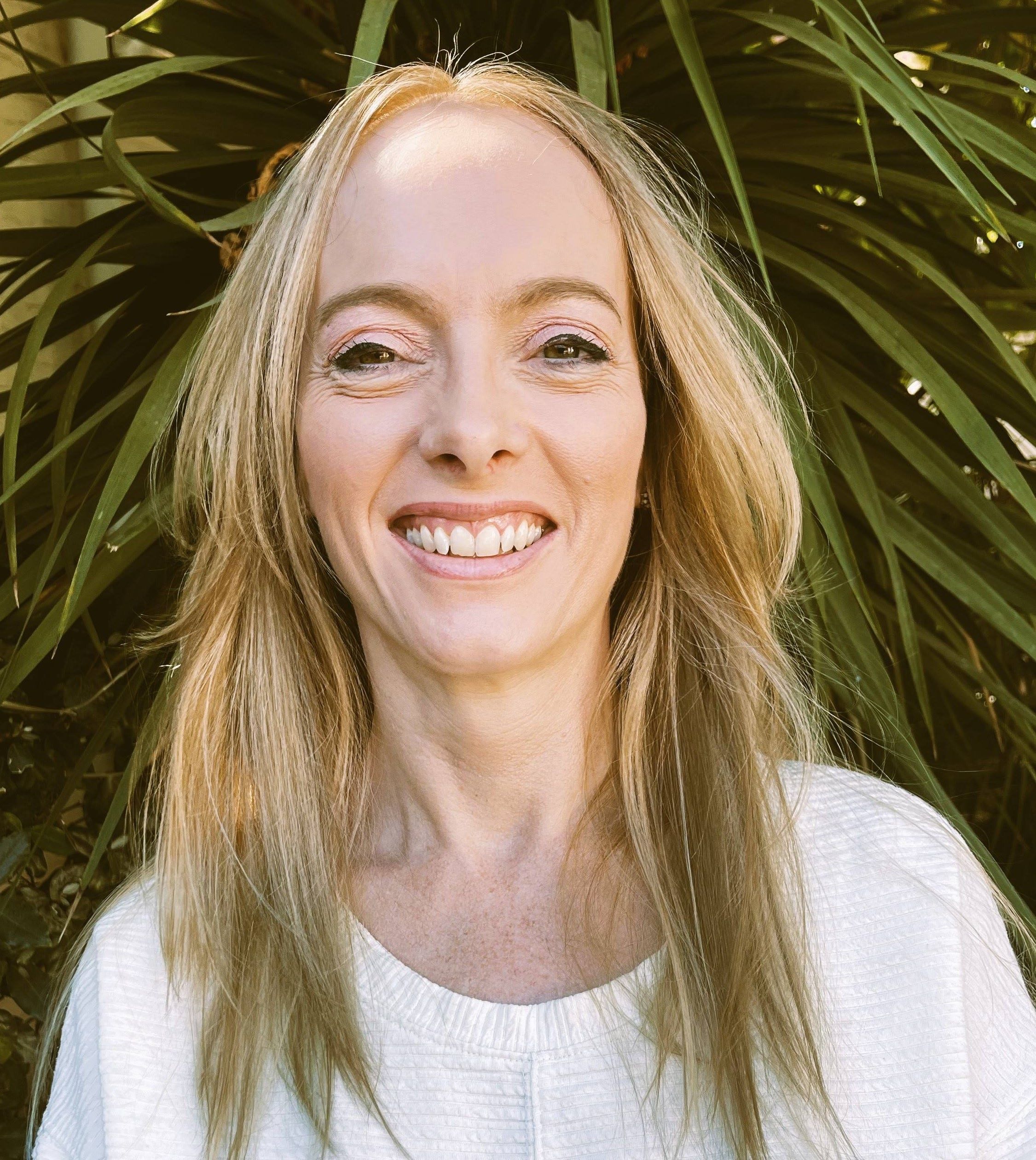CoComelon has been accused of being 'overstimulating' - the experts explain why it's ok to let your kid watch the popular cartoon
CoComelon is adored by kids around the world, but there's some controversy surrounding the popular show...

Dr Patricia Britto

CoComelon has a massive following around the world, but its popularity comes with a dose of controversy. We look at why children adore the series, and why some experts believe parents should limit the time spent watching it.
CoComelon started life all the way back in 2005, as the brain child of Californian father-of-two, Jay Jeon. He created a YouTube channel with his children's book author wife to upload educational musical animations. Originally named ABC Kid TV, the channel grew, and what began as a series of videos depicting songs the couple sang to their own kids, became an actual show. A toddler named JJ was made the leading character, and the views accelerated rapidly.
Now streaming on Netflix, CoComelon was watched for 33.3bn minutes in the US in 2023, according to a Nielsen report. Mum-of-two Victoria told us that her daughter especially loves the show. She said: "My daughter has always been obsessed with CoComelon, really in love with it. She knows the songs and dances around to them. To be honest, I didn't even know there were any problems with letting kids watch it until some mums were talking about it in the playground - it made my daughter joyful, and I didn't find it affected her behaviour like some of them were saying it would."
It's easy to see why shows like Bluey are so popular, and the value that comes from letting kids watch movies that offer an understanding of complex emotions - Inside Out 2 is set to feature the characterisation of anxiety. Recent Netflix film Orion and the Dark was praised for encouraging kids to face their fears, but CoComelon is quite superficial in comparison. Is CoComelon a hit with kids simply because the catchy tunes appeal to youngsters, or is it something more sinister than that? We've asked the experts their opinions on the popularity of the series.
Why is CoComelon so popular?
We spoke to Educational Psychologist Dr Patricia Britto, who explained there could be physiological reasons children can't get enough of CoComelon. She told us "The CoComelon animation has bright colours, vibrant visuals and images of fluid movements can intensely stimulate children’s areas of the brain, such as the occipital lobe and temporal lobe."
Dr Britto added "These brain areas become particularly active while children watch, as they are responsible for visual processing and recognising shapes, colours, and motion. The more vibrant the visuals are, the higher the intensity of the activation of the occipital lobe and temporal lobe, which captures children's attention and facilitates a deep emotional connection." This could explain some parents' concerns that children appear 'addicted,' and don't want the show to be switched off.
CoComelon also has huge teams of experts tasked with keeping the series popular. According to Time, it's not just the obvious touches that appeal to toddlers such as bright colours, no sharp edges or corners, and total lack of conflict. The publication also reported that whenever a new episode was added to YouTube, a data-insights team was on hand to deduce its popularity, and if any new concepts worked or not.
Parenting advice, hot topics, best buys and family finance tips delivered straight to your inbox.
As episodes only take 12-14 weeks to make, this means that lots of concepts can be easily tried out, and the best performing ones quickly identified for future episodes - most kids' shows don't have this luxury, as the lead times are much longer. This not only ensures the CoComelon is showing only its most popular themes to little ones, it offers an excellent opportunity to respond to current events. Not many shows could've acknowledged the pandemic in the rapid way CoComelon could, jumping straight in with segments about handwashing and Doctor's visits shortly after the virus broke out.
This level of insight has also made sure the CoComelon team really knows its audience. With the report from Nielsen suggesting more than 56% of the show's viewers come from African American, Asian American and Hispanic households, the creators introduced characters to reflect that level of diversity. Seeing themselves and their culture depicted in the series is sure to appeal to kids, and keep popularity levels high.
Mum-of-one, Charlie, has a CoComelon-loving child. When asked why she thought it was so popular, this is what she told us: "My son didn't really have the attention for many things on TV, apart from CoComelon. I think it must be because he sees versions of what we do at home in it - trying to get him to 'say yes' to vegetables is something he's definitely used to! The songs are just so catchy though, I don't know how they do it - ask any parent and they'll probably know the entire catalogue of songs by heart, it's quite a skill for them to be that memorable."

The controversies around CoComelon
There has been a lot of panic generated online, suggesting that CoComelon is addictive, and could be responsible for causing bad behaviour in children - parents have reported kids having terrible meltdowns when they attempt to switch the show off. There have also been claims the fast pacing of the show can interfere with development, and the ability to self-regulate emotions. Child development expert Jerrica Sannes has been very vocal in her negative perception of the series.
On her Instagram, Sannes said "CoComelon is so hyperstimulating that it actually acts as a drug, as a stimulant. The brain gets a hit of dopamine from screen-time and it seems that the stronger the 'drug' aka the level of stimulation a show delivers, the stronger the 'hit.'"
She added "This leads to 1) children experiencing symptoms of addiction and withdrawal, often leaving them dysregulated, and 2) a general discomfort with the speed of everyday life. The more children watch the show, the more the brain begins to expect that kind of stimulation. This makes it impossible for the child to play creatively and without entertainment."
However, Dr Britto suggested these claims shouldn't be aimed purely at CoComelon, arguing that there are plenty of other shows that have been suggested to have similarly deleterious effects. Even Jerrica Sannes has admitted there's no empirical evidence yet, proving any of the claims she or others have made against the show, only that the opinions are based on experiences and the qualifications of those making them.
Dr Britto told us "Over the years, there have been so many controversies around cartoons. Still, the right questions are not being asked about the psychological impact of any animation, as the focus has been on the popular ones. You'll find the problems some parents have suggested they experience with the series can be applied when watching any examples of cartoons, and not just CoComelon."
BACP registered therapist, Amanda Macdonald, again reiterated that it's not just CoComelon-related meltdowns that happen when the TV is switched off, these can caused by a love of any series. Amanda told us "Your child may seem distressed when it comes to ending screen time, so give them a verbal countdown, and if it is helpful, use a visual timer as well. There are some fun timers which use coloured sands or oils, which enable the child to feel more aware and involved in what is happening."
She added "Let them know what they will be doing after screen time, or if they are old enough, give them a choice of two options, so they can experience some agency in the moment. Stick to what you have said, and if your child is distressed mirror this, verbalising that you can see how upset they are so they know you understand. Some children find transitions from one activity to the next more challenging than others, so learning how to manage transitions smoothly can take some trial and error."

Should I let my kid watch CoComelon?
There will never be a one-size-fits-all approach to answer this question, and parents are experts in their own children and how TV affects them. While negative claims have been made against the show, some parents have also shared how it has improved speech in speech-delayed children, and other positive outcomes. Our experts have suggested that watching in moderation, and monitoring your child's response, will be helpful.
Dr Britto shared "Cartoons can help children develop emotional regulation skills and equally model inappropriate behaviours such as violence. Characters in cartoons that portray positive skills, such as how to cope with negative emotions, can teach children valuable strategies to manage real-life challenges. The question to ask is will the cartoon provide positive teachings to your children, and if it adds no value, then perhaps they should stop watching it."
CoComelon is non-threatening, and depicts everyday tasks and has positive teachings, suggesting there is no harm in watching it. To help parents out further, Dr Britto added "The psychological impact of watching cartoons goes beyond enjoyment, and all of them have the potential to have negative and positive effects. Parents need to filter what is activating their children's brains by engaging them in a broader range of activities (e.g., outdoor activities), if they become concerned about any negative effects of watching CoComelon."
Meanwhile, Amanda added that all parents are in need of a break sometimes, and popping on something like CoComelon can help them get the quick rest they need. She said "The message here is to use common sense when it comes to issues around screen time. A pre-schooler shouldn’t be watching a screen for extended periods of time, regardless of the show. There is a lot of talk about the fast-paced nature of CoComelon, and some parents are concerned this may cause over-stimulation in their child. There are times however as a parent that screen time can be helpful, giving the parent time to reset, or to prepare a meal. Pre-schoolers need interaction with people, but the adults in charge of them do also need some time to reset and recharge."
For more on kids TV, Netflix movie Leo tackles the anxieties of modern parenting effortlessly. With the genre having a popularity surge, we've also the best anime shows for kids, and The Boy and the Heron age rating - it became only the second ever anime title to scoop an Oscar.

Dr. Patricia Britto is a qualified Educational Psychologist (HCPC Registered) and a mother with practical and research experience. Her qualifications include a Doctorate in Professional Educational, Child and Adolescent Psychology (DEdPsy) from UCL, Institute of Education, an MSc in Mental Health in Learning Disabilities and a BSc in Psychology. Dr Patricia works Independently at the prestigious Harley Street and within Local Authorities Educational Psychology Services to promote children and young people’s (age 0-25) learning and social, emotional and mental well-being. Dr. Patricia offers families, communities, and educational settings support through consultation, individual psychological assessments suitable for children and young people, and systemic work (e.g., training, workshops and organisational psychology support).

Amanda Macdonald is an experienced psychotherapist, counsellor, and member of the British Association for Counselling and Psychotherapy (BACP). Amanda helps adults and children manage and overcome life’s hurdles – including relationship, stress, and confidence issues.

Lucy is a mum-of-two, multi-award nominated writer and blogger with six years’ of experience writing about parenting, family life, and TV. Lucy has contributed content to PopSugar and moms.com. In the last three years, she has transformed her passion for streaming countless hours of television into specialising in entertainment writing. There is now nothing she loves more than watching the best shows on television and sharing why you - and your kids - should watch them.
- Dr Patricia BrittoEducational Psychologist (HCPC Registered)